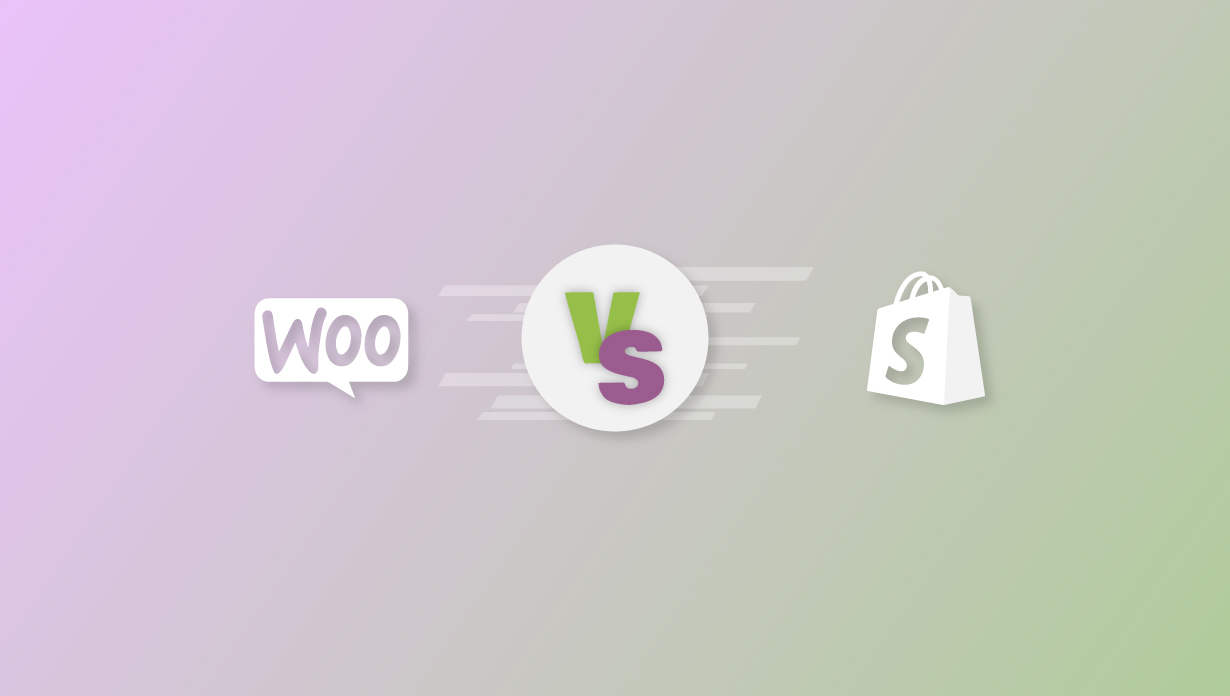Before we begin our Comparison of WooCommerce and Shopify, it’s important to first understand what makes each platform unique. Both platforms have their strengths and weaknesses, and choosing the right one depends on your needs. In this article, we’ll explore WooCommerce vs Shopify, discuss what is Shopify and what is WooCommerce, and provide a detailed comparison between WooCommerce and Shopify. By the end, you’ll have a clearer idea of which platform is the best e-commerce platform for your business.
What is Shopify?
Shopify is an all-in-one E-commerce solution that makes it easy to create an online store, accept payments, and manage your inventory, all from a single platform.
What is WooCommerce?
WordPress powers WooCommerce, an open-source E-commerce plugin. It allows you to take advantage of the most powerful content management system (CMS) and use it to run an online store.
- Ease of use
If you are a fresher and want a completely managed platform, then go for Shopify. Shopify is completely intuitive and easy to set up in just a couple of steps. You can be over and running, and you get a 14 free trial, where you can test out the store without paying anything, but you still need to enter your credit card details before your store can go online and you can test it.
WooCommerce has a steeper learning curve, it is more hands-on and not great for freshers.
- Plugins
Both platforms offer plugins, which Shopify refers to as apps. You need apps for everything, the same as on WooCommerce. These apps are also not free, so the costs can add up very quickly on both platforms. But you can do the same thing on both platforms using similar plugins/apps
- SEO
WooCommerce is a clear winner with SEO. The Yoast plugin, which is free, can completely guide you through building an SEO-friendly page, blog, etc. Our SEO always performed better on WooCommerce sites, even with the exact content and keywords.
- Cost
Surprisingly, most people don’t mention this, but Shopify can be expensive for beginners. If you are trying things out, and are not sure if you are going to sell or are playing around – keep in mind, that Shopify charges a monthly fee – whether you are making sales or not. Also all the “apps” are not free – to get a functional store with the basics (by basics I mean, showing product reviews, social proof, up-sells, and cross-sells nothing fancy), you will need at least three more paid apps that will double that monthly fee. Then you still get transaction costs for every sale you make, up to 2% for the lowest tier. I mean you need an app just to show “trusted badges” on your product pages.
With WooCommerce, you need to pay for hosting, but the cost is lower, and you can access many similar plugins for free. For instance, many WooCommerce themes already include features like cross-sells and up-sells.
- Risk
Shopify takes the lead here with its managed hosting, handling security, backups, and other essential tasks that beginners might not even realize need managing.
With WooCommerce, you need to handle these tasks yourself, and missing something, such as a software update, could leave your site vulnerable to hacking. But your hosting provider should already have some protections in place, back-ups, etc. and you can also get plugins to help you with back-ups.
Comparison between WooCommerce and Shopify
WooCommerce and Shopify are both popular E-commerce platforms, but they have some key differences. Here’s a comparison of the two:
Platform Type:
WooCommerce: It’s a WordPress plugin, which means it’s essentially an extension for WordPress websites. It allows you to turn a WordPress site into a fully functional online store.
Shopify: It’s a standalone, hosted E-commerce solution. You don’t need to have a separate website. Shopify provides everything you need to set up an online store.
Ease of Use:
WooCommerce: It might have a steeper learning curve for beginners, especially if you’re not familiar with WordPress. However, if you’re already comfortable with WordPress, using WooCommerce can be relatively straightforward.
Shopify: Known for its user-friendly interface. It’s generally easier for beginners to set up and manage their store without needing extensive technical knowledge.
Customization:
WooCommerce: Woocommerce offers a high level of customization because it is built on WordPress, a highly flexible platform. You have full control over your website’s design and functionality.
Shopify: While it’s less flexible than WooCommerce in terms of customization. Shopify has a wide range of themes and an intuitive drag-and-drop editor for customization. For advanced users, Shopify does allow access to the code for more extensive modifications.
Cost:
WooCommerce: The basic WooCommerce plugin is free, but you might incur costs for additional extensions, themes, and hosting.
Shopify: It has a monthly subscription fee that covers hosting, security, and other features. While it might seem more expensive upfront, it can be cost-effective for those who prefer an all-in-one solution without dealing with separate hosting and other technical aspects.
Scalability:
WooCommerce: Scales well with the growth of your business. With WooCommerce, you have the ability to choose your hosting solution, allowing you to optimize it based on your specific needs.
Shopify: Offers a scalable solution and can handle large amounts of traffic. Shopify takes care of hosting, so you don’t need to worry about server management as your business grows.
Payment Options:
WooCommerce: You can choose from a variety of payment gateways, including PayPal, Stripe, and others.
Shopify: Provides its own payment gateway (Shopify Payments), but also supports other third-party gateways. Note that using third-party gateways might incur additional transaction fees.
Security:
WooCommerce: Security depends on the hosting provider you choose. You have control over the security measures implemented on your WordPress site.
Shopify: As a hosted solution, Shopify takes care of security measures for you, including SSL.
Summary
In summary, the choice between WooCommerce and Shopify depends on your specific needs, technical expertise, and preferences. WooCommerce is great for those who want more control over their website and are comfortable with WordPress. Shopify, on the other hand, is a more turnkey solution suitable for beginners and those who prioritize ease of use.
For a deeper dive into WooCommerce’s features and its integration with WordPress, click here. Similarly, explore Shopify’s pricing and plans to understand how it can streamline your e-commerce business. Still undecided? Check out our detailed comparison guide to make an informed choice.


